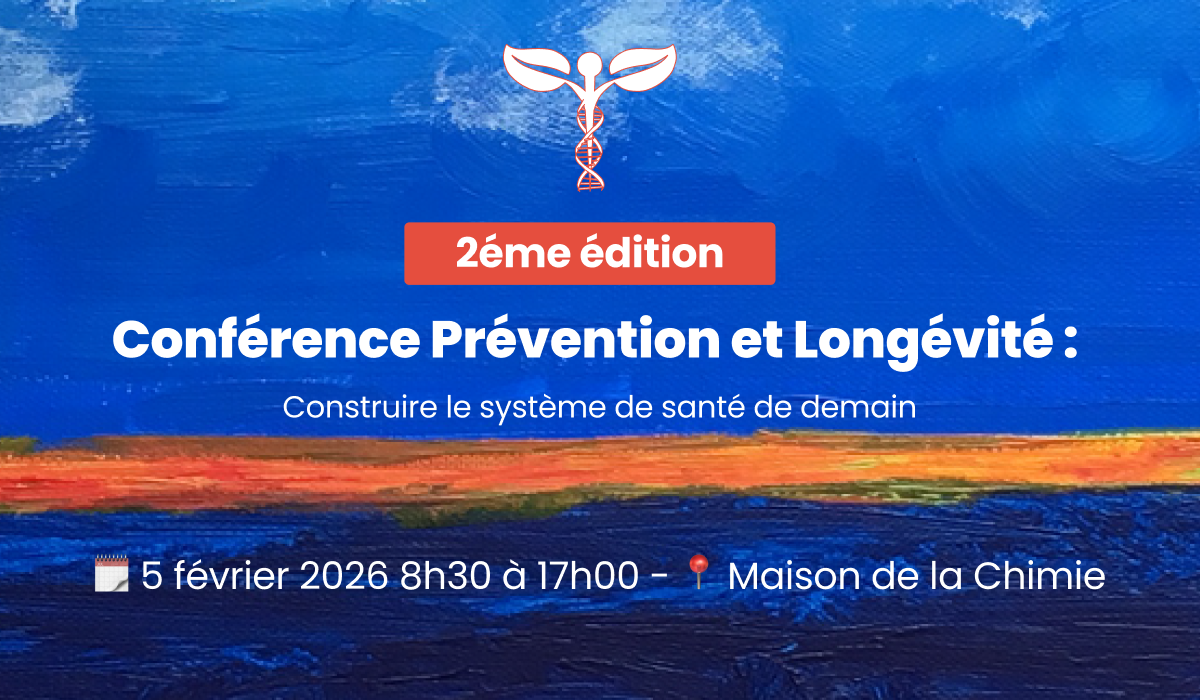
H.B.T Group France organizes an annual conference dedicated to ultra-personalized prevention applied to longevity, with the aim of presenting the latest clinical advances, technological innovations (connected medical devices, remote monitoring platforms, artificial intelligence), and promoting the democratization of what is emerging as one of the greatest medical breakthroughs of the decade. The first edition was held on April 4, 2025, at the Maison de la Chimie in Paris.
Beyond current political debates and budgetary decisions, this initiative takes a long-term perspective, addressing the decline of the curative model and the explosion of chronic diseases. Our ambition is to contribute to the public debate and take part in the reform of the healthcare system. While clinical solutions already exist, technology alone will not suffice: a new economic and cultural model must emerge. As we like to say: “Tomorrow, we will go to the hospital because we are healthy… and to stay that way.”
This transformation raises ethical and philosophical questions, as well as those concerning the patient-hospital relationship and new modes of healthcare consumption. Healthcare facilities will need to reorganize, even reinvent themselves, to offer accessible preventive services across their healthcare territories. Preventive and longevity medicine is establishing itself as a strategic response to the growing challenges of public health. By integrating genomics, biotechnology, and regenerative medicine, it enables an ultra-personalized approach: early risk detection, treatment adaptation, and regeneration of tissues affected by aging.
The rise of digital technologies is accelerating this shift, making these innovations more accessible and fostering a more integrated, proactive, and sustainable healthcare system. Faced with the increase in chronic diseases linked to aging, lifestyles, and environmental factors, investing in prevention has become urgent. This is the key to preserving healthcare systems, stimulating economic growth, and improving quality of life for all.
The success of this new medicine will depend on our ability to combine innovation, accessibility, an appropriate regulatory framework, and ethical reflection, while rethinking our economic and social models. Advances in genomics, artificial intelligence, connected devices, and telemedicine are paving the way for more precise and personalized care. But this revolution also requires evolving healthcare professions and strengthening the training of professionals and technical experts, in order to ensure safe, ethical implementation that serves a more efficient and sustainable system.


Hicham Temsamani
Hicham Temsamani is a biomedical engineer with extensive international experience in the health sector. After a career at the French National Space Agency (CNES), and then at Panasonic, Cisco, Cardinal Health, AWS and Google Cloud, he founded H.B.T Group France – his strategic consulting firm specialized in digital transformation for healthcare organizations. Passionate about innovation and prevention, he also hosts scientific conferences focused on preventive medicine and longevity.
